Vole or mole damage and an idea to protect the hosta
bettylu_zone6a
11 years ago
Featured Answer
Sort by:Oldest
Comments (15)
ci_lantro
11 years agoJon 6a SE MA
11 years agoRelated Discussions
Mole repellent for voles?
Comments (6)I had a bunch of creeping blue spruce in my yard that was housing an entire community of voles (I think they were pine voles). I now have only a couple and am still working to get rid of them. I am not sure which of the following helped, but here is everything I did: * Removed all of the creeping juniper. That is, I took away as much above ground shelter for them. * Hardware mesh around all fruit trees. This is mainly for rabbits and regular voles. Pine voles seem to burrow into my tree mounds at the base-- far away from the mesh. * Spread Mole/Vole repellent around all my trees in a 4' radius. I forget the brand-- yellow bag, castor oil-based small granules. * Placed terad poison in pvc pipes near my trees. * Though not mine, we have outside neighborhood cats that roam the area. The voles persisted with the cats when they had so much cover. With the cover gone, maybe the cats could catch more. Unfortunately, I cannot tell you which of the above worked. I would guess that the repellent worked to some degree because I have not seen any of the tell tale holes in my tree mounds for a year since using it. The one hole I found over the winter was in an untreated section of my yard. I believe the directions on the repellent said to 'herd' them by starting the treatment in one area and pushing them out. I didn't bother with this. I just protected the trees that I care about. I hope this helps....See MoreTrying to identify if it is a vole/mole.. or what
Comments (3)Doesn't look like vole or mole to me. But we had snakes and skinks that hybernated underground and they made a similar mess when they came out. Yours sounds like just worms, they can make golf ball size bumps and if it's filled with soil it's probably worm castings. and the digging marks seem like something trying to get into it. squirrel, cat, skunk, racoon, take your pick....See Morehelp!!! moles and voles
Comments (6)You can try different kinds of traps such as zappers but trapping should work if you are persistent. Some years it can be very difficult, but if you have to set 50 traps or more, so be it. I am about to order plastic traps from Gemplers which I set with peanuts or almonds under large trays (the kind used for mixing small batches of concrete). I protect about 3 acres of nursery this way with good success. I'll be moving around 10 trays and 40 traps until the first heavy snow....See MoreHow to get rid of Moles/Voles in my Garden ???
Comments (137)Watermelons! I never would have thought they could bother those. I am surprised they aren't eating your wife's tomatoes. Maybe the hot peppers being next to the tomatoes is deterring them. I did try making a garlic and hot pepper solution that I sprayed on the onions and soil. I think it worked for a day or two, but after that the voles were back at the onions. They are eating my onions, potatoes, and asparagus. I expect they will get into the sweet potatoes too. I never expected anything to want to eat the onions, that one surprised me!...See Morebettylu_zone6a
11 years agoin ny zone5
11 years agoJon 6a SE MA
11 years agohostaLes
11 years agoJon 6a SE MA
11 years agoci_lantro
11 years agoJon 6a SE MA
11 years agohostahillbilly
11 years agoLuckyOne11
10 years agoSteve Massachusetts
10 years agomercime
10 years agomosswitch
10 years ago
Related Stories

WINDOW TREATMENTSA Surefire Way to Prevent Sun Damage Indoors
Why let light ruin your furniture, floors and artwork, when the solution could be as simple as applying high-quality window film?
Full Story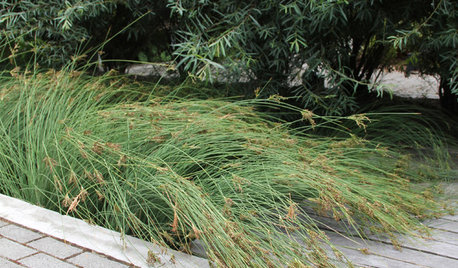
GARDENING GUIDESProtect a Precious Resource With a Rain Garden
Promote pure water and a beautiful landscape with a garden design that makes the most of the rain
Full Story
FENCES AND GATESA Deer Fence Can Be Decorative as Well as Protective
You need a monster-size fence to shelter your garden from deer, but it doesn’t have to look like a monstrosity
Full Story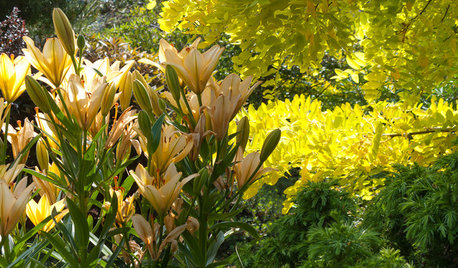
GARDENING GUIDESGreat Garden Combo: 3 Wonderful Plants for a Deer-Resistant Screen
Protect your privacy and keep deer at bay with a planting trio that turns a problem garden area into a highlight
Full Story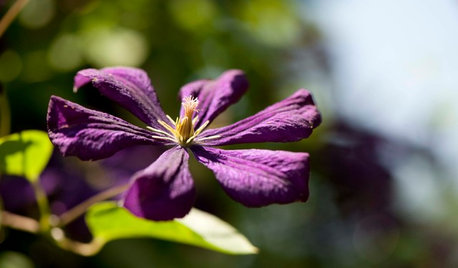
GARDENING GUIDESSoutheast Gardener's March Checklist
Start fresh by envisioning new plant combinations as you tend to fruit trees and rosebushes — and watch out for those darned voles
Full Story
MONTHLY HOME CHECKLISTSYour Fall Home Maintenance Checklist
Prep your house and yard for cold weather with this list of things to do in an hour or over a weekend
Full Story
EDIBLE GARDENSGarden BFFs? Why Your Vegetables Are Begging for Companion Plants
Foster friendships among plants for protection from pests, pollination support and color camaraderie
Full Story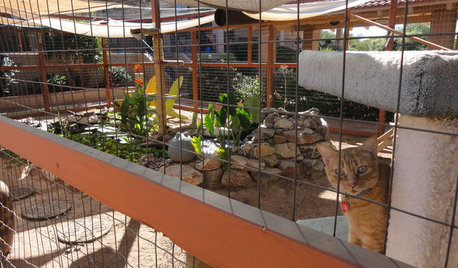
PETSSee a Deluxe 'Catio' Built for Feline Fun
Sixteen lucky cats get the run of a protected outdoor patio with ramps, steps and even a koi pond
Full Story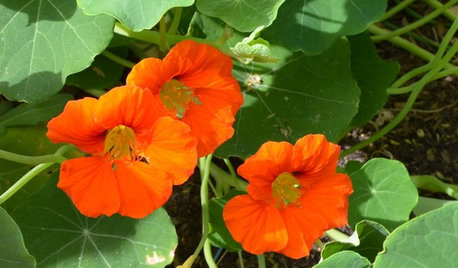
CONTAINER GARDENS7 Deer-Resistant Flowers for Your Summer Containers
Grow these as protection for edibles or just for their colorful beauty — deer might not like them, but everyone else will
Full Story
GARDENING GUIDES5 Easy Plants for a Romantic Entry Garden
Abundant flowers, a heady fragrance and striking foliage combine for a romantic front-yard garden that's deceptively low maintenance
Full Story




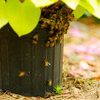
Steve Massachusetts